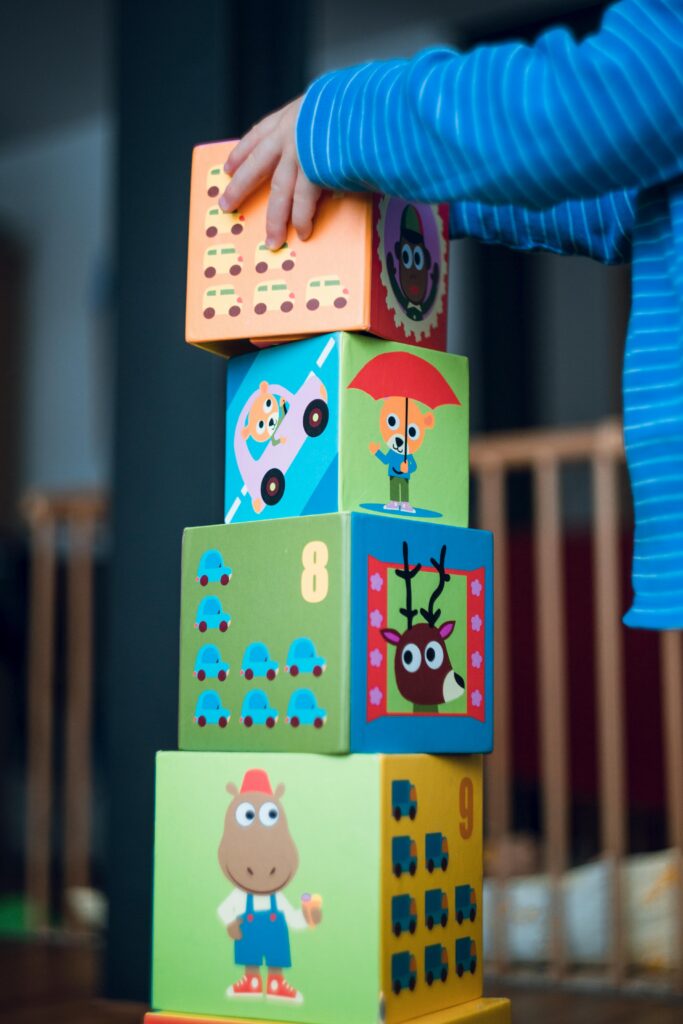You’re not alone if you feel anxious about leaving your child with someone else or day care center. Offloading some of your childcare responsibilities is a significant decision, mainly if this is your first child. However, according to some estimates, you’re in excellent company if you intend to return to work: Over seventy percent of primary caregivers work outside the home. Additionally, it implies that many top-notch childcare choices are available, including nannies, babysitters, and more. Day care is one of your most excellent possibilities, whether via a home day care program or a group center. Numerous facilities provide top-notch care with certified, experienced caregivers in a setting where your child will benefit from crucial age-appropriate socialization.
Table of Contents
Types Of Day Care Center Facilities

A day care center is where parents drop off their children to spend most of the day with other children of different ages. Two choices are available to you:
Group day care centers: Group day care centers are licensed by the state and often function like schools, providing group care for children of different ages. Employers themselves manage a few of these.
In-home day care: This kind of childcare is provided in the homes of providers who frequently also look after their children. Ascertain the legal requirements before sending your child (or while investigating your choices), as not all states require in-home childcare providers to hold a license.
Benefits of Care

A quality day care center can provide the following notable benefits:
- Constant care: Most day care facilities care for children as early as six months old until they are toddlers and occasionally even older.
- Education: A well-designed curriculum is designed to support the growth and development of your toddler.
- Socialization: Your child will spend much time interacting with other young children.
- Cost: Day care is typically less expensive than hiring a nanny if you’re going to return to work and need someone to babysit your child while you’re away. (Hiring a nanny can be more economical if you have more than one child.)
- Reliability: To accommodate a range of parent schedules, most centers are open for business for roughly twelve hours daily.
- Particular to group day care: All employees hold valid licenses and training. Additionally, there is always a substitute because there are multiple caregivers.
- Particular to day care at home: There are typically fewer kids than in a group day care facility, which could lead to more individualized care and reduced exposure to disease.
Downsides To Day Care

The following are some disadvantages of enrolling your child in day care:
Cost: Day care centers are less expensive than private child care but still prohibitively expensive unless your employer or government pays for them.
Exposure to illnesses: Babies may get sicker more frequently than those in another childcare facility because they are exposed to more children, but this is only a sign of what’s to come in preschool. Early germ exposure may strengthen your baby’s immune system, reducing the likelihood of illnesses and colds later in life.
Particular to group day care: If the center adheres to a public school schedule, it might close on holidays while you work, and scheduling flexibility might be less flexible than in a more casual setting.
How To Choose A Day Care

Depending on where you reside, you should give yourself extra time to locate a day care center.
Begin your search before your intended return to the workforce; you should explore alternatives before your baby is born. Here are some actions to do:
- Research: Consult your pediatrician and other parents (at work and among friends) for recommendations. If you need to become more familiar with other parents, try approaching others you encounter in the playground, mommy-and-me classes, or the waiting area of your physician or OB/GYN. You can also check with the state regulatory body or online resources for day care referral services.
- Interview day cares. Over the phone, contact screening facilities and in-home day care providers. (See the list of inquiries below.) Cross the center from your list of locations to visit if its hours are inconvenient and its staff needs to be more cooperative
- Visit the center in person: Once you’ve selected a few, visit them to see if they meet all the requirements (see below). Next, follow your instincts: It’s probably unsuitable for your child if something feels wrong.
- Verify the references: Call past and present clients to see how satisfied they and their children are with the services provided. Please rely on something other than the glowing letters of recommendation that providers may provide, as enticing as it may seem. Editing and forging letters is a simple process.
- Stop by without warning. If you want a more accurate impression of the group day care center’s atmosphere when the staff needs to prepare, think about dropping by unannounced on a different day before making your final decision. If the center prohibits any form of unplanned visits, take it off your list.
Questions To Ask A Day Care

After you’ve narrowed down your selections from your physician and other recommendations, use the following questions to get a sense of the locations you’re considering over the phone.
Questions To Ask Every Day Care Center
What are your schedule and cost (tuition plus application fee)? Crossing a provider from your list is simple if their responses exceed your means or timetable.
- Is a waiting list in place? Some day care centers in major cities have lengthy waiting lists, particularly for newborns and young children.
- Which accreditation do you hold? A state license increases your chances of finding a qualified and loving caregiver for your child, even though it cannot ensure it. It also verifies that the provider complies with government health and safety regulations. The National Resource Center for Health and Safety in Child Care and Early Education may provide you with further information about the licensing requirements in your state. Brings up a new window; alternatively Ch, Child Care Aware of America brings up a new window.
- How many kids can you look after at once? Because infants and early toddlers require much care, ensure the institution establishes boundaries. For groups of younger children, you should look for more trained people; however, specific locations may have different needs.
- What is your stance on child care? Verify that the caregiver’s early education, discipline, soothing, and feeding policies meet your needs.
- What credentials and background do you possess? The caregiver(s) ought to have first aid and CPR training. The director of a group center should hold a degree in early childhood education, and the teachers should be trained in early childhood development or related fields. Training in family day care might be challenging. Still, you should look for someone with direct experience working with children of your baby’s age (the caregiver’s own children count).
- Do parents play a role? Are parents invited to take part in any capacity in the program? And if it’s a group center, does the parent board have the authority to create policies? Is participation mandatory, and how will it fit into your schedule?
- What vaccination protocols do you have in place? It’s possible that the daycares you’re thinking about don’t require children to be completely immunized, mainly if they operate without a license. Avoid people who have loose vaccination regulations.
- What health needs do caregivers have? They should have received all their immunizations and had thorough medical examinations, including TB tests.
- How are children who are ill-treated? The provider ought to have explicit policies on sick children remaining at home and a deadline for parents to pick up sick children from their care. (Parents can consult the AAP’s guidelines if they need clarification.) opens a new avenue for keeping children at home instead of in daycare.)
- What food do you serve children? The kids’ meals and snacks should be healthy, secure, and suitable for their age. It is essential to abide by parental guidelines on breastfeeding, formula, solid foods, and meal timing. It’s never appropriate to prop bottles. You could also inquire about the possibility of bringing your own baby food.
You might also want to ask the following open-ended questions in addition to the ones listed above:
- If you told my infant no and he persisted in reaching for something, how would you respond?
- Is using time-outs or punishments to discipline misbehaving toddlers a good idea?
- When a baby cries because he wants to be held constantly, what should you do?
- What happens when two children want to use the same toy for play?
- When a baby refuses to eat, what should you do?
- When a baby has begun solids, what food do you feed them?
A Final Look

Remember that you are teammates. Tell your day care provider everything that will help her do her job better, such as your baby’s favorite foods and naps, her likes and dislikes, and the best method to settle her down.
Additionally, inform her of any recent developments that might impact your child during the day (e.g., your toddler just began teething or had trouble sleeping the night before); this will ensure a smooth transition for you all.




